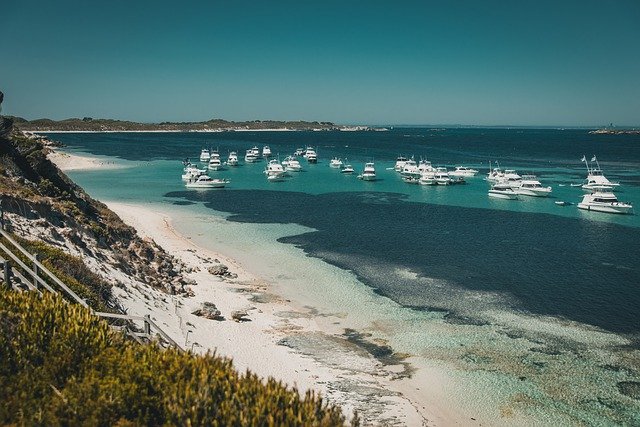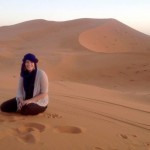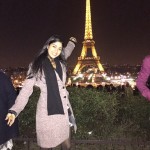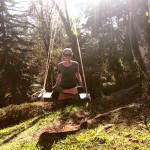How I Ended Up Doing a PhD in Australia

“You should just get a scholarship and do your PhD in Australia,” my sister said nonchalantly, as if they were just handing them out on arrival in Sydney airport. “I met an American woman who’s done it. So, you can too.” As simple as that.
At this time, my twin sister, Brooke, was doing her PhD at Arizona State University. As twins, we usually did the same thing. I could see she wanted me to be her PhD buddy. But her advice wasn’t only selfish. She knew that I was floundering.
I had moved back to the United States a year earlier. Before that, I’d been living in the United Arab Emirates. For two years, I taught at universities in Abu Dhabi and then Dubai. Back in the States, I’d dedicated myself to writing my travel memoir about my experiences in the UAE full time. I was almost done, but I was also broke. I had no job, and it was the beginning of the global financial crisis.
How I Ended Up Doing a PhD in Australia.
My prospects for finding teaching work were grim, and so were my prospects of selling the book, although I was determined to keep trying. And Brooke knew how much I loved starting a new project.
Why Australia? Because once my sister suggested it, I learned that in Australia, PhDs are three years, and focus solely on a project of the candidate’s choosing. Compared to the punishing five to seven years of an American PhD, this sounded more reasonable, and more autonomous. Plus, in Australian universities, academic scholarships had very few strings attached: a student’s sole responsibility was their PhD project, for which they received a very livable bimonthly stipend.
Scholarship recipients didn’t have to teach or do someone else’s research to earn this money, although they could choose to for extra money. And finally, I learned that if I won this scholarship, I would get free healthcare. For this alone, Australia sounded like paradise.
While I waited to find out my fate, I moved to Boston and worked at several dead-end online jobs, unsuccessfully tried to sell my book, and unsuccessfully tried to find a boyfriend.
Just the thought of applying set me dreaming of a new life outside the United States, something I became addicted to ever since I studied abroad in England at 21. And honestly, I didn’t want to face the fierce competition for a spot in a US PhD program. I didn’t want to live in an American university town and drink in the local pub with the other sad sack post graduates. I had done that during my Masters of Fine Arts in Morgantown, West Virginia, and I didn’t want to do it again.
But could I really do a PhD? My sister was the academic; I was the creative one, the writer. Could I hack it as an academic? And if I did, would I find my way back to writing creatively again?
I read some academic articles by female scholars in the area of Gender Studies, a discipline that fascinated me. I had a Graduate Certificate in Women’s Studies, and decided I wanted to learn more. In these articles, the authors interviewed women in Indonesia, Morocco, and Lebanon. They theorized their interviewee’s responses to the effects of globalization on their religious identities. I found their both academic and creative, tickling two different parts of my brain at once. I decided I could find a way to marry the two.
Just the thought of applying set me dreaming of a new life outside the United States, something I became addicted to ever since I studied abroad in England.
I had a project in mind based in Dubai. I wanted to ask young Emirati women how they felt about Western feminism, and their own government’s role in their sense of empowerment. It wasn’t at all fully formed, but all I needed was a paragraph to send off to potential supervisors in Australia. Would one of them want to work with me, or not? Before I could learn the answer, I needed to identify universities where my potential supervisor might be.
Every night, I researched a new university Australia. Nowhere was off limits. I had heard of Sydney and Melbourne, sure, but knew nothing else about the country. Wherever I found the best fit, I would have to apply. If I got in, I would go sight unseen. That is, if I found a supervisor who was interested in my project.
Some were, and some weren’t. I narrowed my search down to a program at the University of Sydney, and one in a place called Newcastle, and two in Adelaide, South Australia. The Gender Studies Department at the University of Adelaide seemed particularly interested, and my potential supervisor—who I had only corresponded with via email—urged me to apply. I did.
By the time November rolled around, I was defeated.
While I waited to find out my fate, I moved to Boston and worked at several dead-end online jobs, unsuccessfully tried to sell my book, and unsuccessfully tried to find a boyfriend. By the time November rolled around, I was defeated. Then one morning I got an email acceptance to study at the University of Adelaide, with that scholarship my sister had so casually told me about. I called to thank her.
I was truly going again, to a country I had never even considered visiting. And where was Adelaide? Somewhere near Sydney? I had a lot to learn.
Thinking about doing a PhD in Australia? Go for it! Here are some things you’ll want to consider:
- It’s only a three year degree, so your knowledge base will probably not be as strong as if you had done a PhD in the United States, or somewhere with a similar academic model. PhDs in the US are five to seven years, and include course work, and comprehensive exams. Because of this, graduates from these programs would most likely have a wider and stronger knowledge base in this discipline.
- Because there are no courses, you are very much on your own in this degree. And you have to be okay with that. If you are very self-motivated, then this is the degree for you. This is also a good choice if you are more excited by your PhD project than gaining a grasp on the entire discipline.
- Doing a degree in Australia will mean making more connections with other Australians and people from countries closer to this continent. If you are interested in having an international academic career, this can be a very good thing. If you want to return to America for your academic career, this might be a harder transition.
Have you traveled to Australia? How was your trip? Email us at [email protected] for information about sharing your experience and advice with the Pink Pangea community. We can’t wait to hear from you.
Photo credits for How I Ended Up Doing a PhD in Australia by Unsplash.








